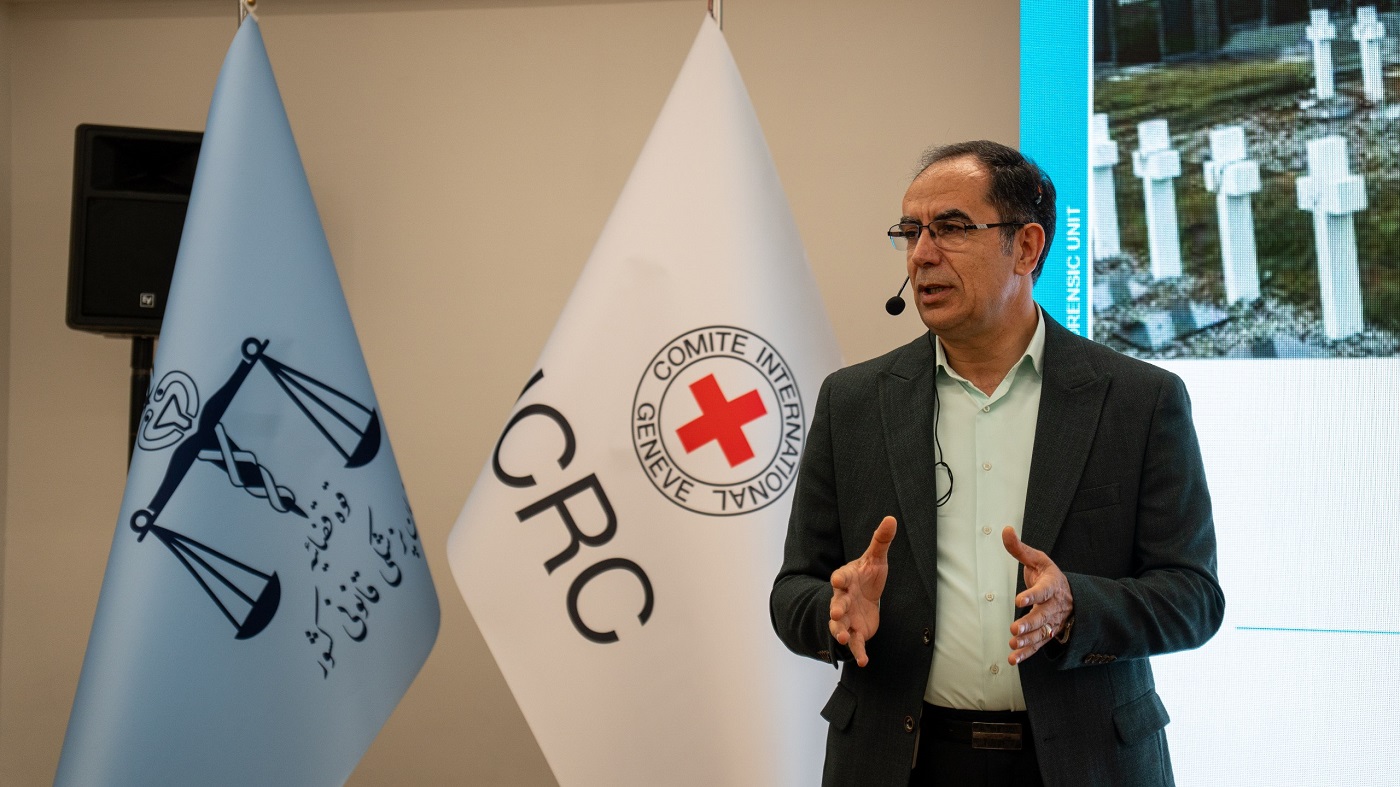International Committee of the Red Cross-Tehran
The the International Committee of the Red Cross (ICRC) in Tehran and the Iranian Legal Medicine Organization jointly organized a three-day training course on forensic anthropology for the organization’s experts, with the aim of enhancing technical and professional capacities in the field of victim identification. The course focused on developing biological profiles from human skeletal remains, including the determination of gender, age, and stature. It was designed and conducted to support ongoing efforts in addressing the needs of identifying missing and to contribute to the humanitarian goals related to them and their families.
This hybrid training workshop brought together forensic experts from various provinces of Iran, providing them with the opportunity to become familiar with the latest anthropological methods and techniques for reconstructing biological profiles of deceased individuals. The course covered key topics such as fundamental concepts of forensic anthropology, scientific approaches for determining gender, age, and stature from skeletal remains, accurate documentation of findings, and ethical and human rights considerations in the process of identification. In addition to enhancing technical skills, the workshop emphasized the importance of adopting a comprehensive and humanitarian approach in the identification process and in returning the remains to their families.
The workshops were held in two rounds, from 13-15 and 20-22 October, for forensic experts representing different provinces across the country.
The main objective of this program was to raise awareness among forensic specialists about the critical role of anthropology in the identification of human remains and to highlight the rights of individuals and families involved in such processes. When skeletal remains are discovered, the scientific and accurate identification of the individual and the proper communication of findings to the family are not only professional responsibilities but also humanitarian and ethical imperatives. Every family has the right to know the fate of their missing loved one and to receive their remains with dignity and respect.
This workshop reflected the ongoing and close cooperation between the ICRC and the Iranian Legal Medicine Organization. Both institutions have planned to continue their collaboration through future scientific and educational initiatives, including specialized courses on the management of human remains for forensic experts from various provinces of the Islamic Republic of Iran.
The successful implementation of this workshop demonstrates the shared commitment of both organizations to advancing professional knowledge, promoting the use of scientific methodologies, and upholding international standards in the field of forensic anthropology. This partnership marks an important step toward strengthening national expertise for a more scientific, accurate, and humanitarian response to the needs of identification and family support, with similar educational programs planned for the future.



Comments